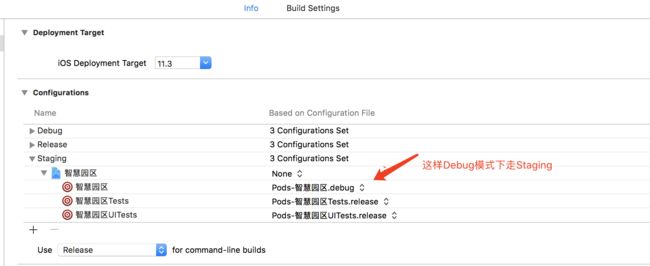如果你对codepush实现的热更新还不了解,当你看到这篇文章,恭喜你赚大了.
不扯没用的,现在步入正题说说热更新那些事!
一.安装 CodePush CLI
//目的: 安装完这个就可以直接使用code-push命令
//注意:这个CodePush指令只需要全局安装一次即可,如果第一次安装成功了,那后面就不在需要安装
$ npm install -g code-push-cli
二.注册并登录 CodePush账号
- 微软服务器
//注册CodePush账号也很简单,同样是只需简单的执行下面的命令,同样这个注册操作也是全局只需要注册一次即可
code-push register
这里会跳进浏览器,可以使用github或者Microsoft帐户注册,注册成功后将会自动登录,生成相应的access token,按照提示在终端输入刚生成的access token,成功则登录.
- 自建服务器
//登录
$ code-push login http://服务器IP:3000/
//需要输入默认账号密码为 account: admin password: 123456
修改默认密码:
$ curl -X PATCH -H "Authorization: Bearer 登录获取的token" -H "Accept: application/json" -H "Content-Type:application/json" -d '{"oldPassword":"123456","newPassword":"654321"}' http://服务器IP:3000/users/password
CodePush注册登录相关命令:
code-push login 登陆
code-push logout 注销
code-push access-key ls 列出登陆的token
code-push access-key rm 删除某个 access-key
三.在CodePush服务器注册App
//添加iOS平台应用
$ code-push app add productName-ios ios react-native
//添加Android平台应用
$ code-push app add productName-android android react-native
我们可以输入如下命令来查看我们刚刚添加的App
$ code-push app list
CodePush管理App的相关命令:
code-push app add 在账号里面添加一个新的app
code-push app remove 或者 rm 在账号里移除一个app
code-push app rename 重命名一个存在app
code-push app list 或则 ls 列出账号下面的所有app
code-push app transfer 把app的所有权转移到另外一个账号
四.集成code-push到reactNative中
安装组件
//在项目根目录
$ yarn add react-native-code-push
在node_modules中如果出现
恭喜你安装react-native-code-push成功了
我们在RN项目的根组件中添加热更新逻辑代码如下
import React, { Component } from 'react';
import {
AppRegistry,
Dimensions,
Image,
StyleSheet,
Text,
TouchableOpacity,
View,
} from 'react-native';
import CodePush from "react-native-code-push";
class App extends Component<{}> {
constructor() {
super();
this.state = { restartAllowed: true };
}
codePushStatusDidChange(syncStatus) {
switch(syncStatus) {
case CodePush.SyncStatus.CHECKING_FOR_UPDATE:
this.setState({ syncMessage: "Checking for update." });
break;
case CodePush.SyncStatus.DOWNLOADING_PACKAGE:
this.setState({ syncMessage: "Downloading package." });
break;
case CodePush.SyncStatus.AWAITING_USER_ACTION:
this.setState({ syncMessage: "Awaiting user action." });
break;
case CodePush.SyncStatus.INSTALLING_UPDATE:
this.setState({ syncMessage: "Installing update." });
break;
case CodePush.SyncStatus.UP_TO_DATE:
this.setState({ syncMessage: "App up to date.", progress: false });
break;
case CodePush.SyncStatus.UPDATE_IGNORED:
this.setState({ syncMessage: "Update cancelled by user.", progress: false });
break;
case CodePush.SyncStatus.UPDATE_INSTALLED:
this.setState({ syncMessage: "Update installed and will be applied on restart.", progress: false });
break;
case CodePush.SyncStatus.UNKNOWN_ERROR:
this.setState({ syncMessage: "An unknown error occurred.", progress: false });
break;
}
}
codePushDownloadDidProgress(progress) {
this.setState({ progress });
}
toggleAllowRestart() {
this.state.restartAllowed
? CodePush.disallowRestart()
: CodePush.allowRestart();
this.setState({ restartAllowed: !this.state.restartAllowed });
}
getUpdateMetadata() {
CodePush.getUpdateMetadata(CodePush.UpdateState.RUNNING)
.then((metadata: LocalPackage) => {
this.setState({ syncMessage: metadata ? JSON.stringify(metadata) : "Running binary version", progress: false });
}, (error: any) => {
this.setState({ syncMessage: "Error: " + error, progress: false });
});
}
/** Update is downloaded silently, and applied on restart (recommended) */
sync() {
CodePush.disallowRestart();
CodePush.sync(
{},
this.codePushStatusDidChange.bind(this),
this.codePushDownloadDidProgress.bind(this)
);
}
/** Update pops a confirmation dialog, and then immediately reboots the app */
syncImmediate() {
CodePush.sync(
{ installMode: CodePush.InstallMode.IMMEDIATE, updateDialog: true },
this.codePushStatusDidChange.bind(this),
this.codePushDownloadDidProgress.bind(this)
);
}
render() {
let progressView;
if (this.state.progress) {
progressView = (
{this.state.progress.receivedBytes} of {this.state.progress.totalBytes} bytes received
);
}
return (
Welcome to CodePush!
Press for background sync
Press for dialog-driven sync
{progressView}
{/**/}
{/*Restart { this.state.restartAllowed ? "allowed" : "forbidden"} */}
{/* */}
Press for Update Metadata
{this.state.syncMessage || ""}
);
}
}
const styles = StyleSheet.create({
container: {
flex: 1,
alignItems: "center",
backgroundColor: "white",
paddingTop: 50
},
image: {
margin: 30,
width: Dimensions.get("window").width - 100,
height: 365 * (Dimensions.get("window").width - 100) / 651,
},
messages: {
marginTop: 30,
textAlign: "center",
},
restartToggleButton: {
color: "blue",
fontSize: 17
},
syncButton: {
color: "green",
fontSize: 17
},
welcome: {
fontSize: 20,
textAlign: "center",
margin: 20
},
});
/**
* Configured with a MANUAL check frequency for easy testing. For production apps, it is recommended to configure a
* different check frequency, such as ON_APP_START, for a 'hands-off' approach where CodePush.sync() does not
* need to be explicitly called. All options of CodePush.sync() are also available in this decorator.
*/
let codePushOptions = { checkFrequency: CodePush.CheckFrequency.MANUAL };
App = CodePush(codePushOptions)(App);
export default App;
五.原生应用中配置CodePush
这里原生应用中配置CodePush我们需要分别配置iOS平台和Android平台
iOS平台
一般有三种方法:RNPM、CocoaPods 、"Manual"详细可参考CodePush的Github:https://github.com/Microsoft/react-native-code-push
我着用的是RNPM,如果你项目使用CocoaPods集成的,那推荐使用cocoaPods:
1.安装rnpm
$ npm i -g rnpm
2.查看下之前在code-push创建的app,下面会用到
$ code-push deployment ls -k
查看结果如
3.将code-push集成到xcode
$ react-native link react-native-code-push
这里需要输入Deployment Key (上面查看的那个),填写Staging对应的Key就行,这个是测试环境的,安卓的我暂时回车忽略了, 以后可以填
此时在我们的xcode的info.plist中会多出一条
在plist中添加
这个方法简直是超级简单
接下来我们来看看codepush给我们提供的demo(这个必须看啊).
现在我们直接把里面的内容复制到index.ios.js里面,注意需要改写东西
class codePushDemo extends Component //这个类名字改成项目名(自己喜好)
//这里面都需要改成项目名字(当然也可以按照你自己的习惯)
let codePushOptions = { checkFrequency: CodePush.CheckFrequency.MANUAL };
codePushDemo = CodePush(codePushOptions)(codePushDemo);
AppRegistry.registerComponent("codePushDemo", () => codePushDemo);
此时你去运行iOS项目,你可能遇到这个错误(如果没有遇到最好了)
../node_modules/react-native/packager/react-native-xcode.sh: No such file or directory
我是重新安装的node_modules解决的,文件缺失,由于也是刚接触不久,也不知道原因,
六.打离线包
说明:
1.我们在RN项目根目录下线创建bundle文件夹,再在bundle中创建创建ios和android文件夹,最后将生成的bundle文件和资源文件拖到我们的项目工程中
2.生成bundle命令 react-native bundle --platform 平台 --entry-file 启动文件 --bundle-output 打包js输出文件 --assets-dest 资源输出目录 --dev 是否调试
给个例子
$ react-native bundle --entry-file index.js --bundle-output ./bundle/ios/main.jsbundle --platform ios --assets-dest ./bundle/ios --dev false
七.发布更新包
将生成的bundle文件上传到CodePush,我们直接执行下面的命令即可
code-push release-react --t <本更新包面向的旧版本号> --des <本次更新说明>
注意: CodePush默认是更新Staging 环境的,如果发布生产环境的更新包,需要指定--d参数:--d Production,如果发布的是强制更新包,需要加上 --m true强制更新
给个例子
$ code-push release-react wisdompark-ios ios --t 1.0.1 --dev false --des "这是第一个更新包" --m true
发布完成之后,查看发布的历史记录,命令如下
//查询Production
$ code-push deployment history projectName Production
//查询Staging
$ code-push deployment history projectName Staging




